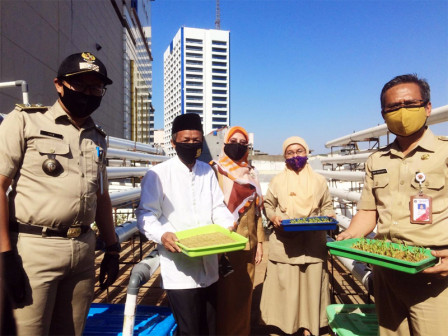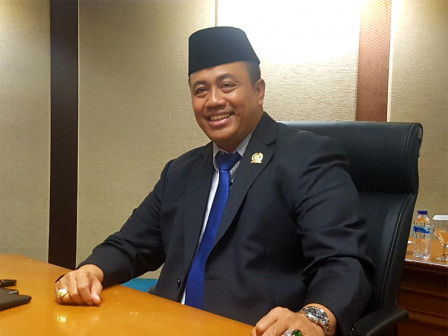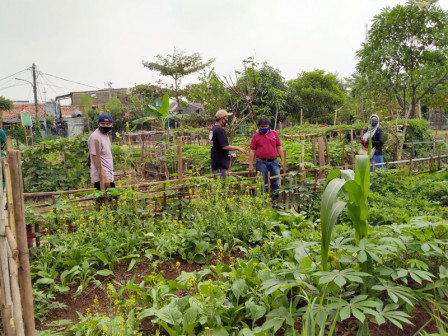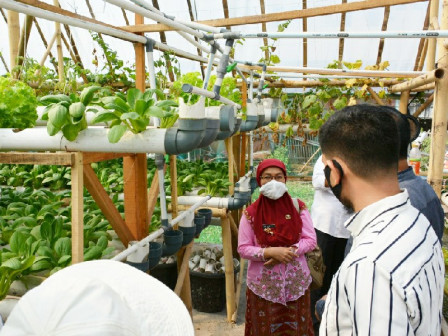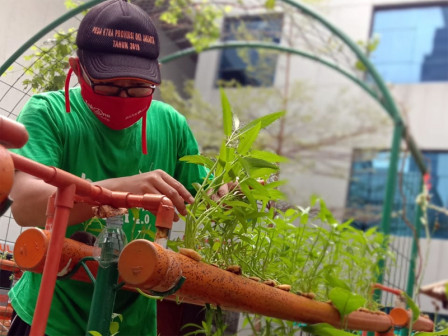Urban Farming Trends in Jakarta Continue to Increase and Quality
Reported by Aldi Geri Lumban Tobing | Translated by Nugroho Adibrata
Jakarta Maritime, Agriculture and Food Security (KPKP) Agency continues to routinely monitor and evaluate urban farming in Jakarta amid COVID-19 pandemic.
In terms of quality, assurance and food safety are our strengths
Its monitoring targets 12 locations, precisely in green alleys of residential areas and housing complexes, including mosques that develop urban farming.
Jakarta KPKP Agency's Agriculture Agency Head Mujiati said the pandemic encouraged people to then conduct urban farming independently.
KPKP Builds Collaboration with Private Company to Develop Urban Farming"Our target is the fulfillment of independent food by and for families, including improving the economy of families and communities by utilizing the results of their crops," she expressed, Wednesday (8/26).
Based on the monitoring results, community enthusiasm for farming was very good. It was evidenced by the innovation and creativity that the residents or farmer groups do in accordance with the conditions of the area and their abilities.
"Initially only a few and now there are many alleys doing urban farming and surely growing until now. They have also felt and taken advantage of the results," she told.
She detailed urban farming on Jalan Raden Saleh, RT 04/03, Cikini Urban Village, Menteng, Central Jakarta was actually implemented along the river. He assessed, it had the potential for agricultural tourism (agro-tourism).
Similar thing was also seen in the Hankam Housing Complex, Jalan Kebayoran Lama, RT 03/04, Sukabumi Utara Urban Village, Kebon Jeruk, West Jakarta that had urban farming using hydroponic techniques.
"It is done on the water channel. One person manages each hydroponic shelf and the results are sold, then part of it becomes a contribution to develop the activity," she expressed.
One of the highlights was urban farming activity that used the rooftop of the Baitussalam Mosque, Jalan Kesejahteraan, RW 08, Keagungan Urban Village, Tamansari, West Jakarta.
"The effort to expand the planting is by utilizing all available spaces, for example the rooftop at the Baitussalam Mosque. Surely Jakarta has many buildings, for instance one building for urban farming up to 100 meters, if it is accumulated to reach acreage," she told.
She added her agency's job was to provide stimulation and assistance. "Further, the development of the community is just what we need to facilitate, for example marketing," she stated.
Aside that, she continued urban farming products were safe for consumption, because of good management, regular assistance and inspection and safe materials.
"In terms of quality, assurance and food safety are our strengths. Because it uses safe materials, such as hydroponics that uses clean water and routine checkup. So it is safe for consumption," she closed.

